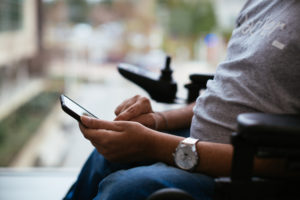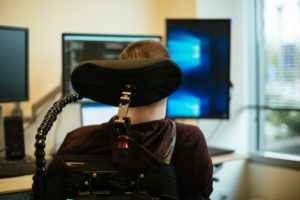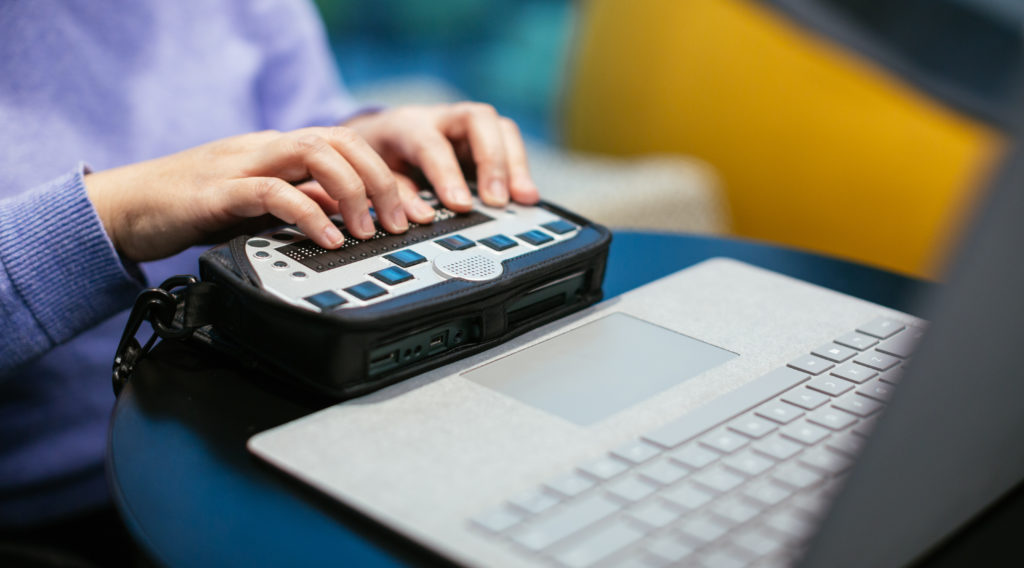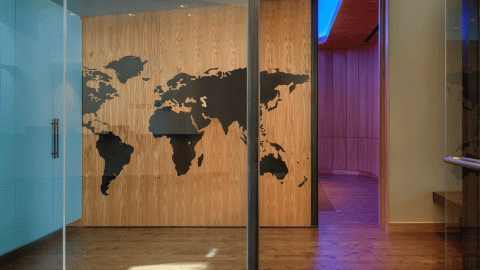Questions about Microsoft’s assistive technology? DAD has the answers.
Globally, more than 1 billion people are living with a disability, yet just one in 10 people has access to assistive technology, according to the World Health Organization.
 Over the years, Microsoft has been building inclusion into its products and services. And to help everyone get the most from accessibility resources, the company has the Disability Answer Desk, or DAD. It is free, 24/7 technical support from Microsoft experts trained in assistive technologies.
Over the years, Microsoft has been building inclusion into its products and services. And to help everyone get the most from accessibility resources, the company has the Disability Answer Desk, or DAD. It is free, 24/7 technical support from Microsoft experts trained in assistive technologies.
“Our goal is to make the Disability Answer Desk a best-in-class support team for customers with disabilities and to use feedback to drive greater accessibility across our engineering teams,” says Sean Marihugh, an accessibility escalation engineer at Microsoft.
Technology has the power to strengthen opportunities for everyone, but it must be intuitive to have an impact. DAD gives customers the technical support they need while gathering critical feedback to improve the assistive features in products.
[Subscribe to Microsoft on the Issues for more on the topics that matter most.]
 Each year, DAD experts field about 150,000 inquiries, assisting customers with products such as Office 365, Xbox, Windows and Skype, as well as third-party assistive technologies, such as screen readers, screen magnifiers, and speech recognition software.
Each year, DAD experts field about 150,000 inquiries, assisting customers with products such as Office 365, Xbox, Windows and Skype, as well as third-party assistive technologies, such as screen readers, screen magnifiers, and speech recognition software.
Microsoft has also established an Enterprise Disability Answer Desk, or eDAD, that supports enterprise customers. Available globally as a free service in English, eDAD also reports customer feedback to specific product teams so they can quickly resolve issues.
“With eDAD, we have the potential to empower people with disabilities to achieve more at work and school—and enable organizations to provide more accessible experiences to their employees and customers,” says Crystal Jones, also an accessibility escalation engineer at Microsoft.
Since introducing DAD in 2012, Microsoft has extended the service to customers in 11 English-speaking countries: the US, UK, South Africa, Ireland, New Zealand, the Philippines, Singapore, Malaysia, Canada, Australia, and India. The service has been rolled out to French– and Spanish-speaking countries, including France, Belgium, Canada, Mexico, and Spain.
With eDAD, we have the potential to empower people with disabilities to achieve more at work and school—and enable organizations to provide more accessible experiences to their employees and customers.
—Crystal Jones
Over the years, Microsoft has gradually expanded the channels for accessing the service. DAD is available through 24/7 chat service and on Twitter by sending a direct message to @MSFTEnable.
DAD also has American Sign Language support through videophone. People who are blind or have low vision can use Be My Eyes, a free app that connects customers through live video calls.
DAD is among a growing number of efforts by Microsoft to empower people with disabilities and create a more inclusive work environment.
For more on these innovations and accessibility initiatives at Microsoft, visit microsoft.com/en-us/accessibility. And follow @MSFTIssues on Twitter.








